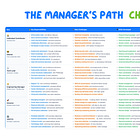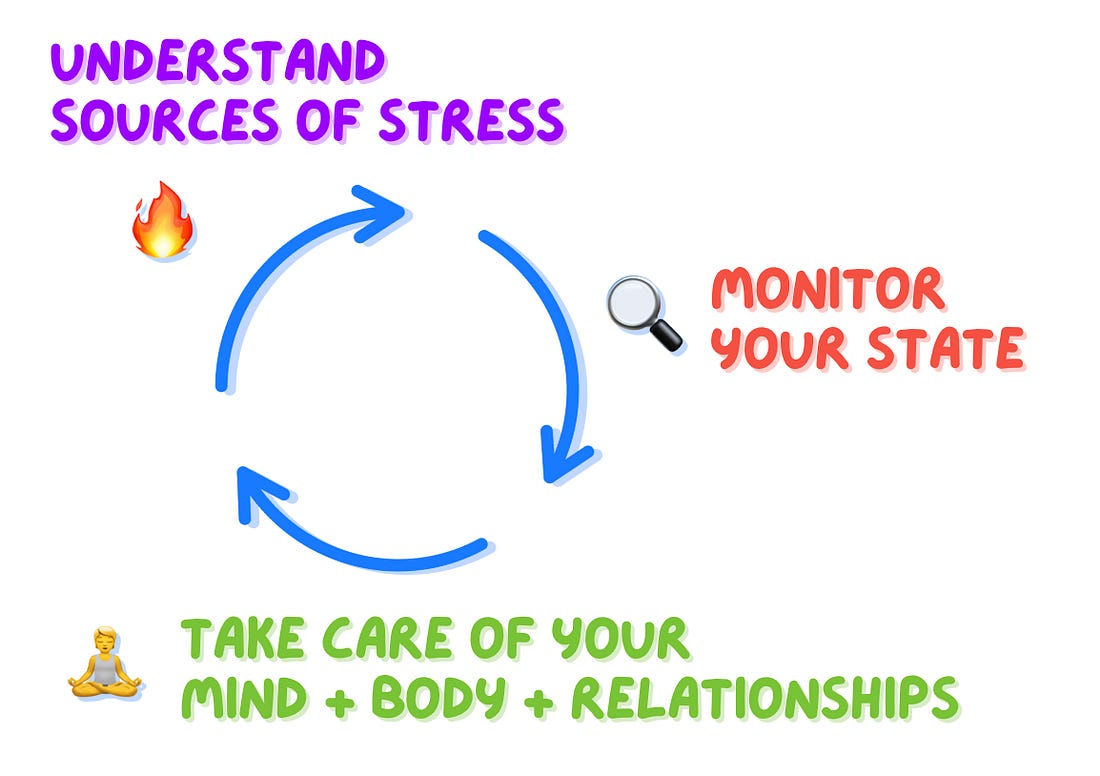How To Prevent Burnout
Hey, Luca here, welcome to a new edition of Refactoring! Every week you get:
Here are the latest editions you may have missed: To access all our articles, library, and community, subscribe to the paid version: How to Prevent Burnout 🔥A thorough guide to detecting burnout signs, recovering from them, and implementing good systems for yourself and your team.It's 2025, and we're still terrible at recognizing burnout—especially our own. Last month we had a community mastermind on this topic, and a recurring theme emerged: burnout is hard to spot because it often creeps up gradually. As one participant described, their burnout only became clear after stepping away from work—during a vacation or after changing teams. Sure, there were recurring physical and emotional signs: difficulty focusing, bad tempers, or losing energy from previously enjoyable routines — but these are always easier to spot in hindsight than in the moment. When people think at burnout they often imagine some kind of mental breakdown, or people throwing tantrums left and right, but in reality it’s more like the proverbial boiling frog: you gradually lose pieces of what makes you a happy and energetic person, and descend into a lesser version of yourself that feels like the new normal. When I hear burnout stories from people in the community, I often recognize myself in some of my worst times as a founder. I used to work long hours, sacrifice weekends, didn’t always feel in control of the outcomes, and was often frustrated with how we were doing as a company, and as a team. Back then, I didn’t even think about being burned out because, in my mind, I could not afford that. I had to keep going. Fast forward to today, my life is very different. I work a lot on Refactoring, but there is little noise: few distractions, almost zero calls. In this quieter environment, I have become much more sensitive to how I feel, how productive / not productive I am, and my relationship with work. I am also a bit older and possibly wiser, so, for the first time, I was able to develop better systems to keep myself in check. I have written about stress and burnout in the past already, but it was ~3 years ago, and boy does the world feel like a different place now. Economic uncertainty has teams needing to do more with less, and AI is looming equally with promise and menace. The good news is we also learned a lot. That’s both true for me personally, and for our community: CTOs, managers and engineers have developed—and shared—practical approaches that actually work—from mindfulness techniques designed for skeptical engineers, to warning systems that catch problems before they become crises. So this article tries to capture everything we have learned: the timeless research that still applies, the new stressors we need to watch for, and the real-world strategies from our community. Here's what we'll cover:
Let's dive in! 🔥 What triggers burnout todayIn 2019, the WHO officially declared burnout a medical condition, defining it as "chronic workplace stress that has not been successfully managed." According to their handbook, doctors can diagnose burnout when someone experiences a combination of:
But actual burnout research goes back decades. Christina Maslach has studied it for her entire career and identified six core areas of work that contribute to stress: 1) Workload 💼Your workload should match your capacity so you can get things done, find time to rest, and grow professionally. When overloaded, you sacrifice one of these — Maslach argues it’s usually rest first, and then growth. There are several reports about how burnout from workload has been made worse by remote work. The blurred boundaries between work and life, and the distributed nature of companies whose people work across many time zones, makes engineers work longer hours from home than they ever did in the office. There's no natural closing time signal, and it’s hard to stay disciplined and implement it yourself. 2) Control 🎛️Lack of autonomy kills motivation and breeds stress. This regularly shows up in many ways: micromanagement, insufficient resources to do good work, or constantly being in reactive instead of proactive mode. 3) Reward 🏆The amount of effort you put into your work should be matched by the reward you get for it. There are two main kinds of rewards:... Subscribe to Refactoring to unlock the rest.Become a paying subscriber of Refactoring to get access to this post and other subscriber-only content. A subscription gets you:
|




